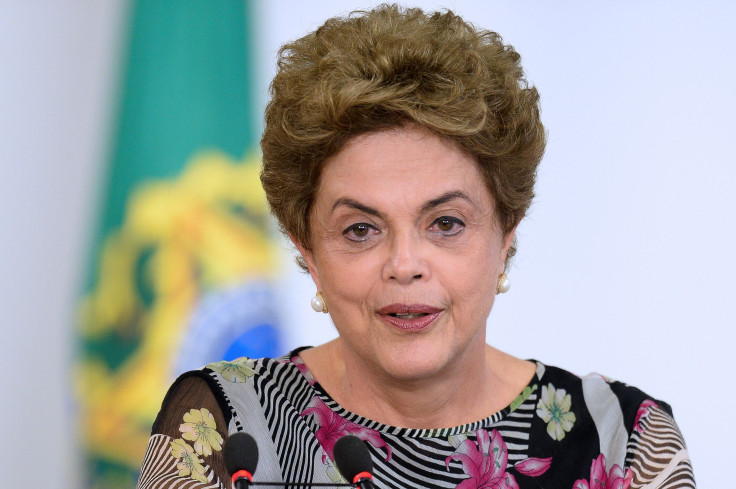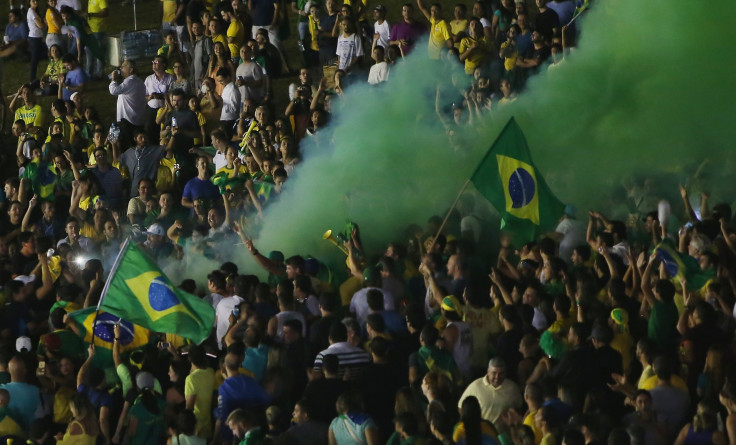Panama Papers: Brazilians Embroiled In Petrobras Corruption Scandal Also Linked To Mossack Fonseca Documents Leak

Dozens of people embroiled in Brazil’s government corruption scandal are also caught up in this week’s massive leak of offshore tax documents.
At least 57 people linked to a bribery and money laundering investigation have opened 107 offshore companies through the Panamanian law firm Mossack Fonseca, according to the trove of more than 11.5 million files now known as the Panama Papers. The documents, unveiled Sunday, implicated some of the world’s richest and most powerful officials from dozens of countries and raised fresh concerns about the extent of wealth being squirreled away in offshore tax havens.
The Brazilian bribery investigation, called Operation Car Wash, involved a multimillion-dollar kickback scheme at the state-run oil company Petrobras. The scandal has led to criminal charges against leading politicians and fueled nationwide opposition to President Dilma Rousseff, who is facing impeachment. It also sparked a separate investigation into former President Luiz Inacio Lula da Silva, whom Brazilian prosecutors are seeking to arrest.
Prosecutors in January said they had evidence that Mossack Fonseca is a “big money launderer” and had filed criminal charges against five employees of the firm’s Brazilian office. The authorities accused María Mercedes Riaño, the general manager of Mossack Fonseca Brazil, of ordering staff to destroy and hide documents related to the Car Wash scandal, the Panamanian newspaper La Prensa reported at the time.

The law firm is suspected of helping conceal the ownership of a luxury beachfront apartment in Guarujá, a resort town south of the megacity São Paulo. Authorities assert that Lula secretly owns the apartment — a charge the former president has denied.
Mossack Fonseca denied any wrongdoing and said the Brazilian office was independent of the main Panamanian law firm.
The Panama Papers project resulted from a yearlong investigation by the Washington-based International Consortium of Investigative Journalists, the German newspaper Süddeutsche Zeitung and more than 100 other news organizations. The Brazilian connection to the secret offshore tax documents threatens to further fuel political unrest sweeping the South American nation.
Brazil’s largest political party last week said it was leaving Rousseff’s coalition and pulling its members from her government in a move that cripples her chances of surviving in office. The expected break by the Brazilian Democratic Movement Party, or PMDB, boosts the odds that Congress will impeach the president in a matter of weeks in a planned vote.
PMDB politicians themselves were implicated in the Mossack Fonesca leaks. Eduardo Cunha, the speaker of the lower house of Brazil’s legislature and the man leading the push to oust Rousseff, allegedly received bribes linked to offshore companies involved in the Petrobras scandal. Brazilian journalists with the Panama Papers investigation said that one of the companies is directly linked to Cunha, although his name does not directly appear on the list. Cunha denied the allegation in a statement, Agence France-Presse reported.
Politicians from six other parties in Brazil — excluding Rousseff’s Workers’ Party — were also named as clients of Mossack Fonesca. Political figures from the PSDB, the most prominent opposition party in the country, was mentioned along with members of the PDT, PP, PSB, PSD and the PTB parties, according to the newspaper O Estado de S.Paulo.
© Copyright IBTimes 2025. All rights reserved.





















